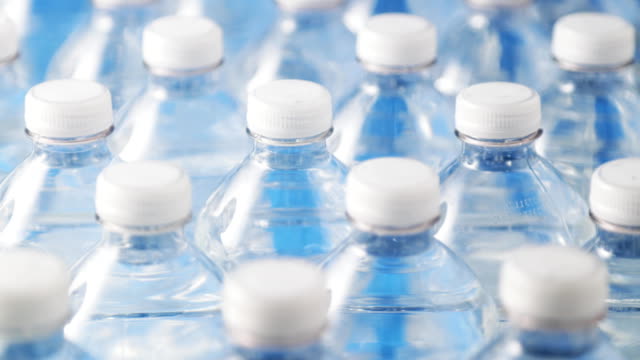Welcome to WellHealthOrganic.Com. In today’s era of heightened health awareness, the quest for natural remedies and nutritious alternatives is ever-present. One such item that has sparked considerable demand recently is plastic water bottles. However, there are valid reasons why reusing plastic water bottles is discouraged. Let’s delve into the reasons behind this:
Reasons Not to Reuse Plastic Water Bottles:
- Risk of Contamination: Reusing plastic water bottles can pose a risk of contamination. Bacteria may accumulate in the bottle over time, especially if it’s not cleaned properly, leading to potential health hazards.
- Degradation of Plastic: Plastic water bottles are not designed for repeated use. With each reuse, the plastic material may degrade, potentially releasing harmful chemicals into the water, especially when exposed to heat or sunlight.
- Bacterial Growth: Even with thorough cleaning, it’s challenging to completely eliminate bacteria from plastic water bottles. Over time, microscopic scratches and crevices may develop in the bottle’s surface, providing an ideal environment for bacterial growth.
- Leaching of Chemicals: Plastic water bottles may contain chemicals such as BPA (bisphenol-A) and phthalates, which can leach into the water, especially when exposed to heat or acidic beverages. Reusing these bottles increases the likelihood of chemical leaching, potentially compromising the safety of the water.
- Reduced Effectiveness of Cleaning: The design of plastic water bottles, with narrow necks and tight caps, can make thorough cleaning challenging. Residual moisture and bacteria may linger in hard-to-reach areas, even after washing, increasing the risk of contamination.
- Environmental Impact: Reusing plastic water bottles perpetuates the cycle of plastic consumption and waste generation, contributing to environmental pollution and degradation. Single-use plastics, including water bottles, pose a significant threat to marine life and ecosystems when improperly disposed of.
- Health Concerns: In addition to the environmental impact, the use of plastic water bottles raises concerns about human health. Chemicals leaching from plastic bottles may disrupt hormonal balance and have adverse effects on reproductive health and development.
- Promotion of Sustainable Alternatives: By avoiding the reuse of plastic water bottles, consumers can promote the adoption of sustainable alternatives, such as reusable stainless steel or glass water bottles. These alternatives are durable, easy to clean, and free from harmful chemicals, making them safer and more environmentally friendly choices.
Microplastics the Invisible Threat Lurking in Every Sip
Microplastics, tiny plastic particles less than 5mm in size, have infiltrated our water sources, food chain, and even the air we breathe. These microscopic pollutants originate from the breakdown of larger plastic items, including bottles, and can carry harmful chemicals and pathogens. Consuming microplastics through contaminated water or food presents potential health risks.
The Myth of Recycling
Despite widespread recycling efforts, the reality is that only a fraction of plastic bottles are recycled. The rest end up in landfills, incinerators, or as litter in the environment, where they persist for hundreds of years, releasing toxins and disrupting ecosystems. The notion of recycling as a solution to plastic pollution is thus largely a myth.

Cultural Shifts
Addressing the plastic bottle crisis requires a fundamental shift in our cultural attitudes and behaviors. We must move away from the convenience-driven, disposable mindset that has fueled the proliferation of plastic bottles and embrace more sustainable alternatives. This entails rethinking our consumption patterns, supporting legislation to reduce plastic use, and promoting a culture of reuse and recycling.
Innovations in Sustainable Packaging
Fortunately, there is a growing movement towards sustainable packaging solutions that aim to mitigate the environmental and health impacts of plastic bottles. Innovations such as biodegradable plastics, plant-based alternatives, and refillable containers offer promising alternatives to traditional plastic bottles. Embracing these innovations can help reduce our reliance on single-use plastics and transition towards a more circular economy.
Corporate Responsibility
While individuals play a crucial role in reducing plastic bottle usage, corporate responsibility is equally essential. Beverage companies, bottling manufacturers, and retailers must prioritize sustainability in their operations, from product design to disposal. This includes investing in eco-friendly packaging, implementing take-back programs, and advocating for policies that promote recycling and waste reduction.
Education and Awareness
Education and awareness are key components of addressing the plastic bottle crisis. By informing consumers about the environmental and health impacts of plastic bottles, we empower them to make more conscious purchasing decisions. This can involve raising awareness through public campaigns, integrating sustainability education into school curricula, and providing accessible information about alternative packaging options.
Policy Interventions
Government intervention is essential in tackling the plastic bottle crisis effectively. Policymakers must implement stringent regulations to limit the production, sale, and disposal of single-use plastic bottles. This can include bans on certain types of plastics, incentivizing the use of reusable containers, and imposing taxes or fees on plastic packaging to internalize its environmental costs.

Community Action
Change often begins at the grassroots level, with communities taking collective action to address pressing issues like plastic pollution. Community-based initiatives, such as beach cleanups, plastic-free initiatives, and local recycling programs, play a vital role in raising awareness, building solidarity, and driving meaningful change. By mobilizing at the community level, we can amplify our impact and create a more sustainable future for generations to come.
The Power of Consumer Choice
As consumers, we wield significant power through our purchasing choices. By opting for products with minimal packaging, choosing reusable alternatives, and supporting companies committed to sustainability, we send a powerful message to the market. Demand for eco-friendly products drives innovation and incentivizes businesses to prioritize sustainability in their operations.
Holistic Solutions
Addressing the plastic bottle crisis requires a holistic approach that considers both environmental and social dimensions. Sustainable solutions must not only minimize environmental impact but also promote equity, justice, and inclusivity. This entails ensuring access to clean drinking water for all, mitigating environmental injustices, and empowering marginalized communities disproportionately affected by plastic pollution.
Global Collaboration
Plastic pollution transcends borders and requires coordinated international action to effectively address. Global agreements such as the Paris Agreement and the Basel Convention provide frameworks for cooperation on environmental issues, including plastic waste management. By uniting nations in the fight against plastic pollution, we can leverage collective expertise, resources, and political will to achieve meaningful change on a global scale.
Conclusion:
In conclusion, there are compelling reasons why reusing plastic water bottles is discouraged. Risk of contamination, chemical leaching, and environmental concerns outweigh reuse convenience. Choose sustainable alternatives for a healthier planet and safer water. At WellHealthOrganic.Com, we advocate for sustainable living and offer a range of eco-friendly products to support your health and well-being. Join us in making conscious choices that benefit both our health and the environment.

